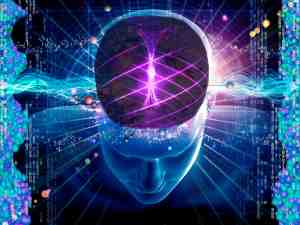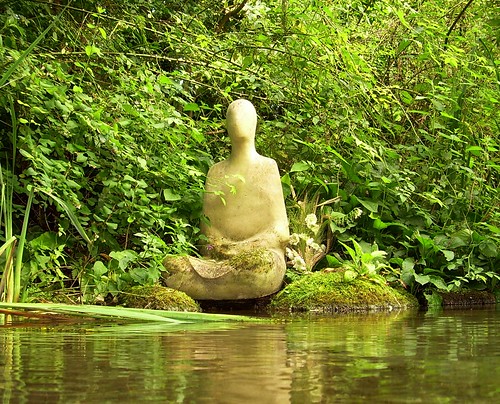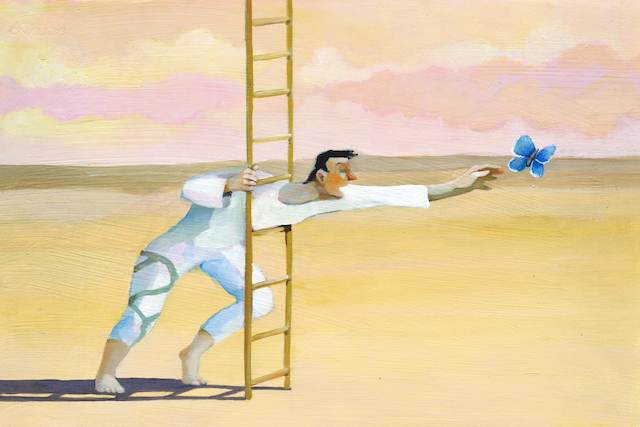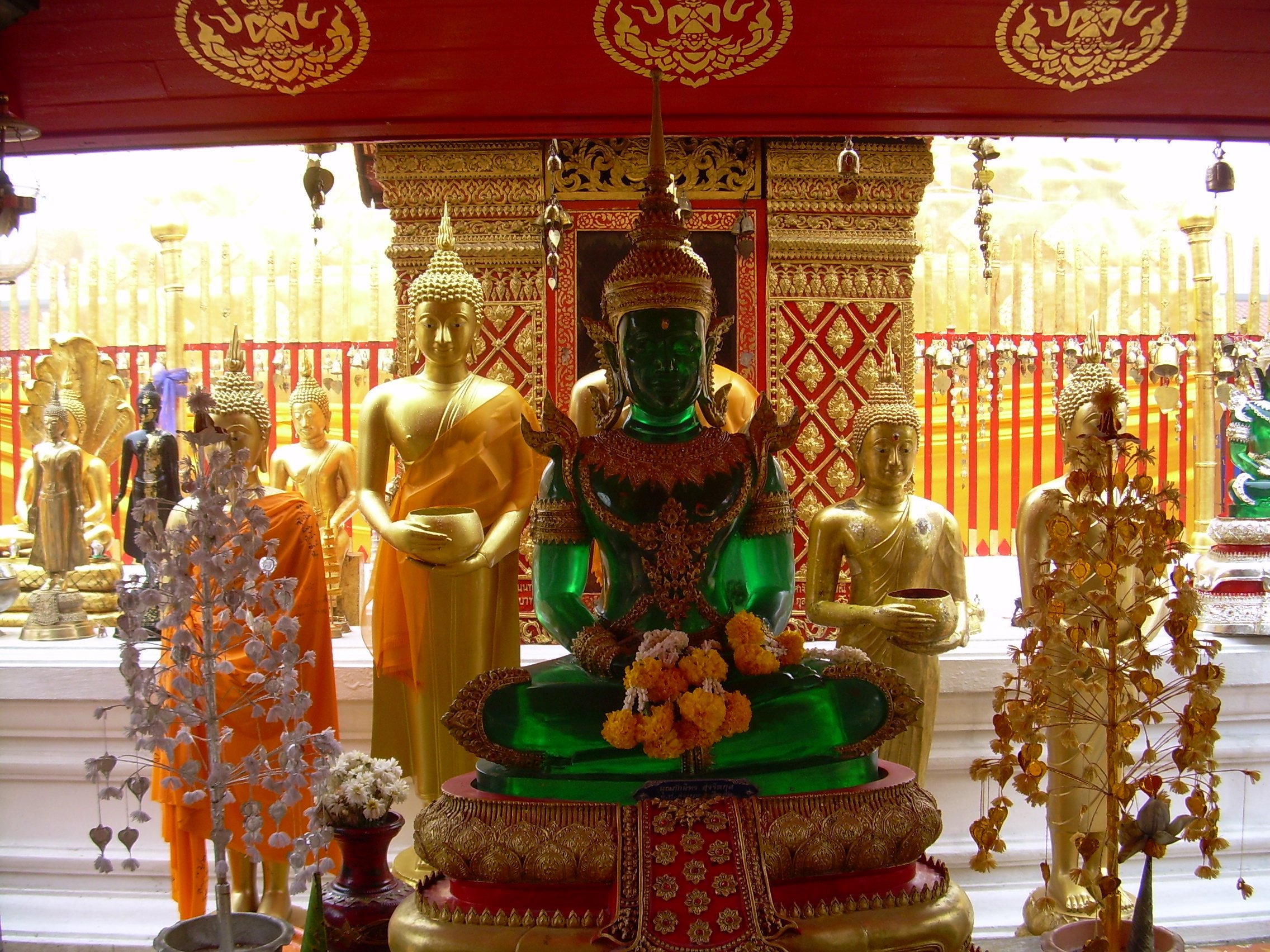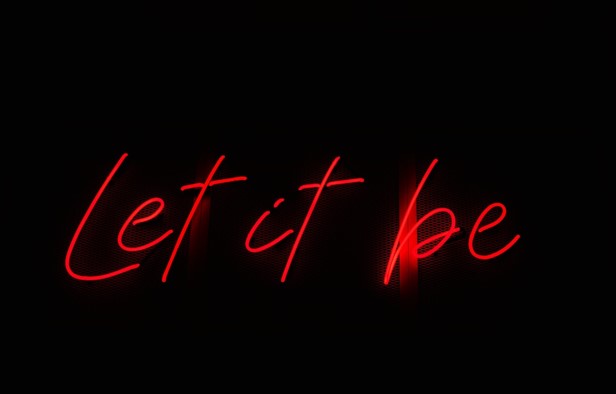How To Wake Up
4 Simple Practices To Help You Wake Up Now
The meditation group sat respectfully on their stools and mats and listened as the visiting monk quietly intoned the words of the revered zen master Thich Nhat Hanh on how to wake up:
"I have arrived. I am home.
In the here. In the now.
I am solid. I am free.
In the ultimate I dwell."
He then led us through a series of mindfulness practises starting with sitting meditation and ending with mindful walking.
The session closed with these words from our zen master:
"Make the present moment, the here and the now, into your true home. That is the only home that we have."
Later that day a group of us were sitting around relaxing and chatting about different things and one lady, an experienced practitioner, said something that has stayed with me over all of the 20 years since that meditation retreat, and it was this:
"One day in twenty thousand lifetimes when I eventually reach enlightenment..."
As I reflected on the day I realised that despite the power and the simplicity of the teachings from our zen master, and the hours of mindfulness practice, what this lady expressed was something that affects so many of us who are on the spiritual path.
We are surrounded by teachings, articles, meditation groups and teachers, and zen masters - and yet despite all this, when it comes down to it, we really don't know how to wake up.
We are seeking truth, seeking enlightenment, seeking nirvana, and yet we remain:
- Stuck In Seeking
- Attached To Attainment
So What Exactly Does It Mean to Wake Up - What Is "Enlightenment"?
There is something in human nature - a desire to glamorise, sanctify, objectify and idolise – that elevates people who have offered deep insights to the human race and thus put distance between them and the rest of us.
But these great ones have exactly the same psychological, emotional, and physiological constitution as the rest of us. To put it bluntly – we all share the same basic equipment.
If one can do it so can we all.
There is nothing magical, mystical or mysterious about waking up we’re actually having glimpses of enlightenment all the time.
Enlightenment - waking up - means:
- To be free of the effects of your mind
- To be unencumbered with thoughts about the past or the future
- To be 100% present-moment-aware
This is also sometimes referred to as a "Unity Consciousness".
- This is an experience and not an idea.
- This is not something to attained or sought after.
- This is an important aspect of a deeply practical way to live.
The focus of this article is to offer 4 simple practices to show you how to wake up and to live like this now.
But first let's take a look at the two big stumbling blocks of being "stuck in seeking" and "attached to attainment".
How To Wake Up - Stuck In Seeking
Being stuck in seeking is the single biggest stumbling block to waking up.
I have known, watched and observed numerous sincere and committed people in the Buddhist and Christian traditions [which I am most familiar with] stay "stuck in seeking".
It is often the most sincere, the most devout, the most dedicated who are the most stuck in seeking – in many cases almost as a badge of honour [and I say this respectfully and lovingly] – seeking truth, seeking God, seeking enlightenment, seeking nirvana, seeking deeper spiritual understanding and growth.
I have seen and heard many experienced and dedicated meditators [like that lady] talk about enlightenment as something to be achieved in the future, I have seen and heard many devout Christians seek God as anywhere but here now inside themselves.
The same applies to the many of us who would not view ourselves as on a spiritual quest but are nevertheless seeking self-improvement and self-development.
Why Are We Stuck In Seeking?
The most fundamental reason why we remain stuck in seeking is because of the delusion that waking up - enlightenment – is something we have to work towards.
It is always over there – up there – out there – ahead of me – away from me – in the future – separate from me - anywhere in fact but here now.
In common with all delusions this delusion is ego based.
I have to do something, I have to work towards something, if I keep doing enough of this I will one day reach enlightenment.
As a result, this being stuck in seeking delusion becomes the single biggest stumbling block to present moment awareness.
How To Wake Up - Attached To Attainment
The other major delusion that most of us get caught up and lost in is our delusion about enlightenment. This is sometimes called "The Stink Of Zen".
We get attached and fixated on the attainment of our idea of enlightenment. We get seduced by the temples, the rituals, the iconography, the buddha - the sheer glamour of it all.
We want to get our greasy hands on this shiny thing we call enlightenment.
Various schools of buddhism will tell you that there are different levels of enlightenment and that may or may not be true - but it really doesn't matter.
It doesn't matter because in talking about these states and focusing on these states they become objects of attainment and thus a delusion.
Former American Zen Master Dennis Merzel aka Genpo Roshi (creator of the "Big Mind" process) expresses all this rather well.
However you slice and dice it the enlightenment state is just that - a state, an experience of unity consciousness.
These experiences are not just for the privileged few, the gurus and zen masters, they are common and occur spontaneously.
Any experience of enlightenment is a wonderful thing but of itself is of little to no use to anyone other than the person experiencing it.
If you think of other transcendent experiences that we can enjoy in many other areas of life, they are wonderful and our lives are enhanced by them, but we can not live in those states all the time.
We have to come back "down to earth" and engage in the world of duality as we experience it with the rest of the human race.
Why Wake Up? Why Bother?
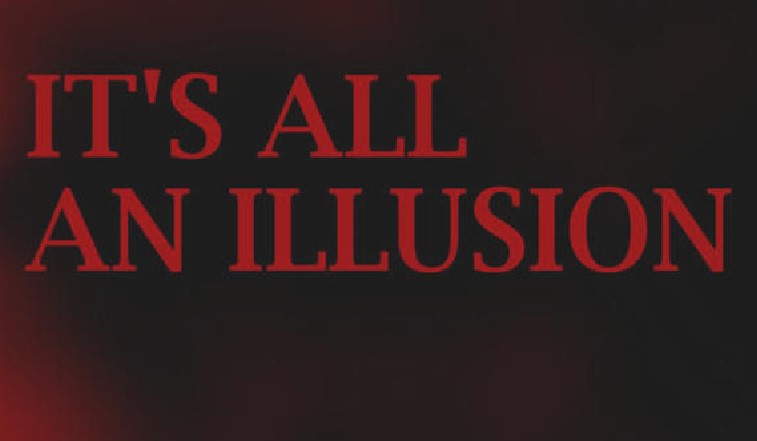
Buddhist literature is full of reasons why it's a good thing to wake up and it all boils down to illusion, impermanence, suffering and the apparent pointlessness of life.
If we strip this down further, the fundamental root of the problem of life is our attachment to and identification with our ever-changing thought-stream.
We confuse the “world as-it-is-thought-about” with the “world as-it-is”.
Every problem we have is because we think we know.
We turn our past experiences into future expectations.
We cling to emotional storylines that distort our reality.
We accumulate judgments, opinions, and biases that warp our views of people and things.
We read and absorb written teachings, we watch videos and listen to podcasts, we attend meditation classes and we think we know. But we do not know.
We are caught and trapped in a world of illusion and yet...
If everything is an illusion, then nothing matters, yet how does that square with deep loss, pain, grief, or trauma in your life?
The Heart Of The Experience Of Waking Up Is Paradox
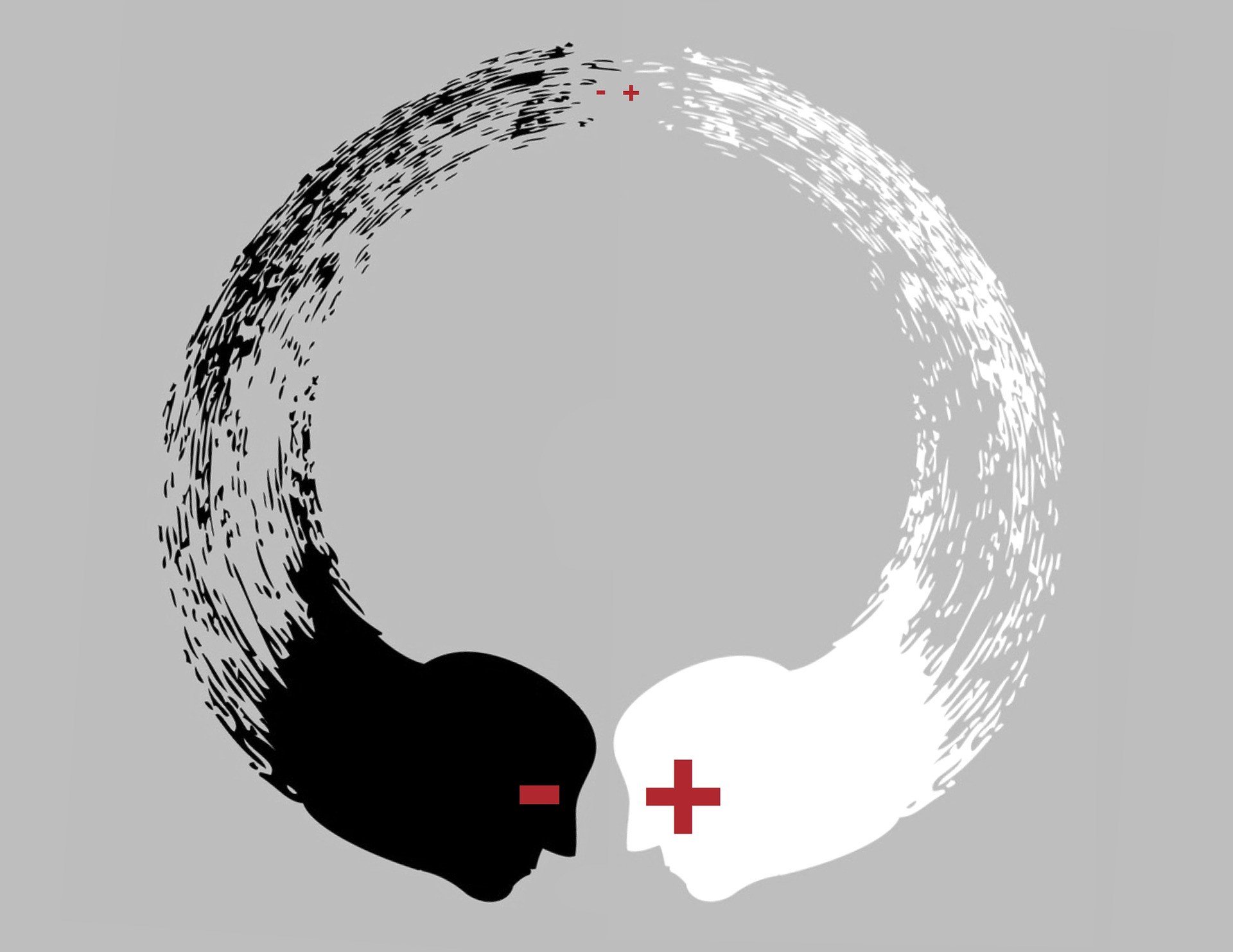
So the insights of the Buddhist understanding of life tell us that it is all an illusion, but we are emotional beings and we feel our pain deeply and those emotions are very real.
We can summarise this confusion as:
Everything is illusion and everything matters.
As it says in the Tao Te Ching: "True words seem paradoxical."
On the one hand everything is interconnected and a part of a one-ness or non-duality and there is no separation.
Yet
despite this innate one-ness or unity - or more accurately at the heart
of it - there is a separation, there are 2 sides to absolutely everything, the yin and the
yang.
Yet whilst these 2 sides are opposite to each other they are dependent on each other.
For example: there can no up without down, light without darkness, male without female, expansion without contraction, wealth without poverty or good without bad.
Deep loss, pain, grief, and
trauma are an inherent part of this paradox.
This paradox exists within us - on one hand we can experience the one-ness and unity of the enlightened mind, and on the other hand we have the intellectual capacity for exercising a wide range of thinking skills in the everyday world of duality, and as emotional beings we feel deeply.
The key to living with this paradox is balance.
This is all about achieving a balance between the harmony and peace of the inner world of present moment awareness with the requirements of surviving and functioning effectively in the outer world of duality.
The balanced life
is one where you recognise the full spectrum of possible responses and
choose the most appropriate one for the situation you find yourself in.
This
balance occurs when:
- You draw daily guidance and inspiration from your inner world of present moment awareness and execute and implement with your thinking mind.
- You stay fully present with your emotions and allow and accept the full range of your responses to life as you experience it.
After he discovered how to wake up Buddha still walked on muddy ground. He was a human being on earth, doing human things and feeling human feelings. Ignoring nothing, avoiding nothing, resisting nothing.
A villager once asked Buddha:
"How is that you and your monks all do all the things we do, you walk, you sleep, you eat, you chop wood, all the same as we do?
Buddha replied:
"Yes it is true that we walk, we sleep, we eat, we chop wood, the difference is that we know we do."
4 Simple Practices To Help You Wake Up Now
This is where we pull it all together and based on my own experiences I want to share four practices that I use that I have found to be transformative in my experience of how to wake up.
There is nothing magical, mysterious or esoteric here, just four recommendations for practical steps that you can take to free yourself from the effects of your mind.
These four steps are: rest, ask, accept and practice.
[1] Rest
This practice is so obvious that it has taken me about 20 years to realise its importance and benefit!
In the western world we lead such busy lives that allow little to no time to rest our minds.
Shortly before he died, zen master Thich Nhat Hanh wrote a wonderful article called Rest In The River in which he explains how important rest is as a practice
This really resonates with me. I am by nature a restless person and I have found this practice very helpful.
It creates a beneficial setting for the sitting mindfulness practice.
One of the many things I like about
Thich Nhat Hanh's teaching and practices is that they are so very practical and simple to understand.
I share a summmary of extracts here in his own words:
Recommended Reading:
Can You Stop Thinking - Discover The Joy Of A Quiet Mind
How To Practise Mindfulness - Be Humble And Just Do This Simple Thing
[2] Ask

"Phone A Friend" was one of the "lifelines" available to contestants on The British created TV show "Who Wants To Be A Millionaire".
Given the amounts of money involved, a lot was riding on getting the right answer each time, so these lifelines were important in helping the contestants to make the right decision when they didn't know the answer.
You have such a lifeline and its called prayer. What I am sharing is not in the Buddhist playbook so if the idea of a prayer seems alien to you reframe this as an intention.
I struggled with this practice for years until I came to understand it in a way that works for me
In the recommended reading below I have listed several articles which look more deeply at the mind, the many selves we have within us, a reframing of the idea of prayer, and a good look at the whole idea of a higher self and what this means in practice.
But right now, my sole point is to recommend the power of asking for help in your mindfulness practice and also for help in anything that is troubling you or that you are trying to resolve, anything that is causing you to not be present right now.
Asking for help makes it easier to let it go and let your mind rest.
The focus of your request can be whatever you feel comfortable with such as your higher self, the universe, the buddha mind within you - it really doesn't matter.
What does matter is your intention and the spirit in which you ask, and I recommend an attitude of humility.
Say it, pray it and forget it. The answer will always come.
Recommended Reading:
Your Higher Self - Your Hardwired Portal To The Universe
Self Dialogue - Dealing With Your Many Selves
It Isn't The Process Of Prayer That’s The Problem, It’s The Way It’s Framed
3. Accept
This one word describes one simple teaching and one powerful practice.
That word is acceptance.
The power of acceptance is the freedom that it gives you.
Freedom from the tyranny of your thoughts and emotional responses to the events and circumstances of your life.
The transforming power of acceptance is that it:
- Unfuses your thinking mind from your observing mind.
- Stops you identifying with the torrent of words and thoughts it is constantly spewing out.
- Unhooks your dependence on a change in outer circumstances before you can make an inner change.
- Releases your "stuck in waiting" and always looking forward or backwards.
- Releases your resistance to what is happening in your life.
- Brings you peace and calm.
- Centres you in the present moment, now.
Acceptance is the foundation stone upon which all personal change is built.
I have found this practice very helpful. In the article listed below I have set out how to do this practice. It works.
Recommended Resource:
The Transformative Power Of Acceptance
4. Practice

The key to how to wake up is practice.
The fundamental practice is the practice of mindfulness or present moment awareness.
You can think of this as a learned competence.
Mindfulness is a natural state
Have you ever woken up in the morning in a lucid awakening state and for a few seconds not known where you are or what day it is or what you’re doing that day?
Just a momentary blankness – your mind feeling like a clean slate – and then whoosh in come the thoughts – a bit like pulling a big thick jumper over your head and then with a jolt everything is "normal" again.
High risk activities create intense present moment awareness
Whenever you climb a steep ladder – or a rock-face – or drive a car at speed or engage in any physical activity where there is some degree of danger – have you noticed afterwards how you became oblivious to everything except your 100% concentration totally in the present moment?
Devoid of thought after intense concentration
Or perhaps at a more sedate level, can you recall how you feel for a few seconds after you have ceased to be engaged in any all encompassing activity that has absorbed your 100% attention – that clear feeling devoid of thought.
Being in nature and places of beauty encourages mindful states
Maybe it’s happened when you have been out in the open air in a wild, remote or natural setting and you have become completely still and at been aware of feeling at one with the beauty, wildness and splendour.
Glimpses of enlightenment
These are all normal, "everyday" type experiences where we are
unaffected by our thoughts and where we are totally present. These are
naturally occurring states of mindfulness or present moment awareness.
In that state of present moment awareness, time does stand still – or we cease to be aware of it, the usual sense of separation and duality does weaken or disappear, insights occur more frequently and intuition and creativity become stronger.
There are two approaches to developing the competence of present moment awareness and they are of equal importance.
[1] Formal Meditation Practice
As with any learned competence you need to progress through the 4 stages of learning and move through the conscious competence learning cycle until the practice of present moment awareness becomes an unconscious competence.
There are a great many articles on this website on the practice of mindfulness and a good place to start is How To Practice Mindfulness.
[2] Informal meditation
Developing the capacity to be wholly present in a wide range of daily situations is the best way of integrating your formal meditation practice into your eveyday life.
You can train yourself to consciously find opportunities in everyday life to practice mindfulness and bring yourself back to the present moment.
You can make activities such as walking, taking a shower, washing dishes, or talking to others, listening to someone else, eating, as an opportunity for practicing present moment awareness.
As your competence grows, you learn how to wake up, it becomes an unconcious competence and it becomes a habit.
You develop the capacity to just stop thinking, to be free of the effects of your mind, to have a quiet mind and to be fully present in the moment.
Recommended Reading:
Mindfulness Exercises - The practise of living mindfully
Practising Mindfulness In Daily Life
Mindful Listening Beyond The Spoken Words, How To Listen Actively
Mind Games & How To Free Yourself From Them A Day In The Life Of Me
Return from "How To Wake Up" to: What Is Spirituality?
LATEST ARTICLES
The Battle For Your Mind - How To Win Inner Freedom In A Digital Age Of Distraction
 From External Events to Inner Events. We often think of “events” as things that happen out there: the traffic jam, the rude comment, the delayed email reply. But what truly shapes our experience is wh…
From External Events to Inner Events. We often think of “events” as things that happen out there: the traffic jam, the rude comment, the delayed email reply. But what truly shapes our experience is wh…How to See Your Thoughts Without Becoming the Story
 A Practical Guide to Thought-Awareness. You can spend your life inside the stories of your mind without ever learning how to see your thoughts clearly and objectively. Most of the stuff we tell oursel…
A Practical Guide to Thought-Awareness. You can spend your life inside the stories of your mind without ever learning how to see your thoughts clearly and objectively. Most of the stuff we tell oursel…The Collison Decision Matrix - A Simple Framework for Better Choices
 The Collison Decision Matrix Is A Practical Everyday Thinking Tool. Most of us spend a surprising amount of time worrying about decisions. From small ones such as what to wear, what to eat, what to te…
The Collison Decision Matrix Is A Practical Everyday Thinking Tool. Most of us spend a surprising amount of time worrying about decisions. From small ones such as what to wear, what to eat, what to te…The Power Of Asking The Right Question
 The Power Of Asking The Right Question Lies In The Quest For Insight. To experience the power of asking the right question you must develop the practice of asking questions. The best way to improve th…
The Power Of Asking The Right Question Lies In The Quest For Insight. To experience the power of asking the right question you must develop the practice of asking questions. The best way to improve th…Site Pathways
 Here is a site pathway to help new readers of Zen-Tools navigate the material on this site. Each pathway is based around one of the many key themes covered on this site and contain a 150 word introduc…
Here is a site pathway to help new readers of Zen-Tools navigate the material on this site. Each pathway is based around one of the many key themes covered on this site and contain a 150 word introduc…How To Live With Contradiction - Beyond Thought Let Stillness Speak
 A major impact on so many peoples' lives is the situational contradiction of unfilled realistic expectations. So where does all this leave us? Well here we are, with mental equipment that is more lim…
A major impact on so many peoples' lives is the situational contradiction of unfilled realistic expectations. So where does all this leave us? Well here we are, with mental equipment that is more lim…How To Trust The Process Of Mindfulness - Right Now
 In mindfulness, the process isn’t some distant goal — it's what is happening right now. When we talk about how to trust the process of mindfulness the credibility of the process is heavily dependent…
In mindfulness, the process isn’t some distant goal — it's what is happening right now. When we talk about how to trust the process of mindfulness the credibility of the process is heavily dependent…Inner Mastery For Outer Impact - Mental Clarity For Effective Action
 Insights only matter if they translate into consistent action. In a world crowded with quick fixes and motivational soundbites, the theme “Inner Mastery for Outer Impact” calls us to something more e…
Insights only matter if they translate into consistent action. In a world crowded with quick fixes and motivational soundbites, the theme “Inner Mastery for Outer Impact” calls us to something more e…The Wise Advocate - Helping You Achieve The Very Best Outcome
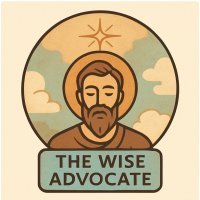 The focus of your attention in critical moments of choice either builds or restricts your capacity for achieving the best outcome. When we talk of 'The Wise Advocate' its easy to think of the consigl…
The focus of your attention in critical moments of choice either builds or restricts your capacity for achieving the best outcome. When we talk of 'The Wise Advocate' its easy to think of the consigl…Trust The Process - Beyond The Cliche
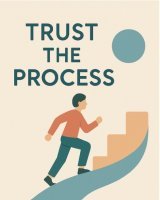 The phrase "trust the process" has become a cliche, the woo-woo mantra of the "self help" industry. Those three little words feel like they ought to mean something useful but hidden behind them are a…
The phrase "trust the process" has become a cliche, the woo-woo mantra of the "self help" industry. Those three little words feel like they ought to mean something useful but hidden behind them are a…The Dopamine Delusion - Why Anticipation Beats Achievement
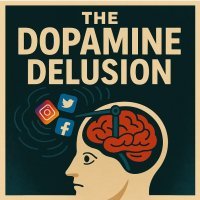 The thrill we feel is not in the having, but in the wanting. The more we have, the more we want. The more things we acquire and the easier things get for us, the more discontent we feel. The more spo…
The thrill we feel is not in the having, but in the wanting. The more we have, the more we want. The more things we acquire and the easier things get for us, the more discontent we feel. The more spo…The Power Of Silence Is Experienced In Your Use Of Language
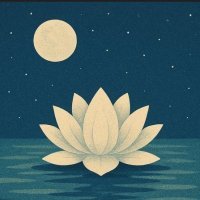 Practise the "Beneficial Neurological Delay" for optimal comprehension. The power of silence is experienced in your use of language, specifically: - How you formulate the words you use to think and in…
Practise the "Beneficial Neurological Delay" for optimal comprehension. The power of silence is experienced in your use of language, specifically: - How you formulate the words you use to think and in…
